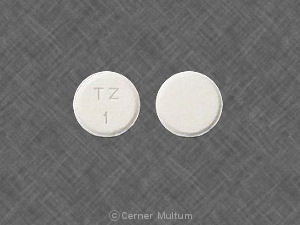Remeron SolTab Interactions
There are 673 drugs known to interact with Remeron SolTab (mirtazapine), along with 13 disease interactions, and 2 alcohol/food interactions. Of the total drug interactions, 141 are major, 528 are moderate, and 4 are minor.
- View all 673 medications that may interact with Remeron SolTab
- View Remeron SolTab alcohol/food interactions (2)
- View Remeron SolTab disease interactions (13)
Most frequently checked interactions
View interaction reports for Remeron SolTab (mirtazapine) and the medicines listed below.
- Abilify (aripiprazole)
- albuterol
- Ambien (zolpidem)
- Ativan (lorazepam)
- atorvastatin
- bupropion
- clonazepam
- clonidine
- Cymbalta (duloxetine)
- Effexor XR (venlafaxine)
- gabapentin
- Keppra (levetiracetam)
- Klonopin (clonazepam)
- Lamictal (lamotrigine)
- levothyroxine
- lisinopril
- lorazepam
- Lyrica (pregabalin)
- melatonin
- Nexium (esomeprazole)
- Pristiq (desvenlafaxine)
- Seroquel (quetiapine)
- simvastatin
- trazodone
- Valium (diazepam)
- Vitamin D3 (cholecalciferol)
- Vyvanse (lisdexamfetamine)
- Wellbutrin XL (bupropion)
- Xanax (alprazolam)
- zolpidem
Remeron SolTab alcohol/food interactions
There are 2 alcohol/food interactions with Remeron SolTab (mirtazapine).
Remeron SolTab disease interactions
There are 13 disease interactions with Remeron SolTab (mirtazapine) which include:
- renal/liver disease
- pheochromocytoma
- bipolar screening
- depression
- hypotension
- neutropenia
- mania
- ALT elevations
- hyperlipidemia
- hyponatremia
- mania/hypomania
- seizures
- glaucoma
More about Remeron SolTab (mirtazapine)
- Remeron SolTab consumer information
- Compare alternatives
- Pricing & coupons
- Reviews (9)
- Drug images
- Side effects
- Dosage information
- During pregnancy
- Generic availability
- Drug class: tetracyclic antidepressants
- Breastfeeding
- En español
Related treatment guides
Drug Interaction Classification
| Highly clinically significant. Avoid combinations; the risk of the interaction outweighs the benefit. | |
| Moderately clinically significant. Usually avoid combinations; use it only under special circumstances. | |
| Minimally clinically significant. Minimize risk; assess risk and consider an alternative drug, take steps to circumvent the interaction risk and/or institute a monitoring plan. | |
| No interaction information available. |
See also:
Further information
Always consult your healthcare provider to ensure the information displayed on this page applies to your personal circumstances.


